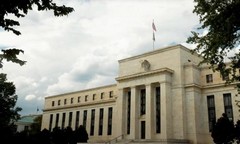What Currency Trading Means: A Comprehensive Explanation and Practical Guide
Currency trading refers to the economic activity of buying and selling different currencies or currency-related products (e. g. foreign exchange, gold, cryptocurrencies, etc.) through the market to increase wealth or hedge risk. It is one of the core components of the financial market, which is widely used in the fields of personal investment, cross-border settlement of enterprises and national economic regulation.

Definition and classification of currency transactions
At the heart of monetary transactions is "money", but it goes far beyond paper money or coins in the traditional sense. In the modern financial system, currency transactions mainly include the following aspects:
Forex Trading (Forex)
Forex trading is the most common form of currency trading, which refers to buying and selling currency pairs of different countries (such as USD/EUR, GBP/JPY, etc.). The foreign exchange market is one of the largest and most liquid financial markets in the world, with trillions of dollars traded daily. Individual investors can participate in trading through the foreign exchange trading platform and take advantage of exchange rate fluctuations to earn the difference.
Gold Trading
As a "safe-haven currency", gold occupies an important position in currency trading. Gold trading includes in stock trading, futures trading and gold ETFs (exchange-traded funds). Investors can hedge their inflation risk by buying gold or related financial products.
Cryptocurrency Trading
With the development of blockchain technology, cryptocurrencies such as Bitcoin and Ethereum have gradually become the new darling of currency transactions. Cryptocurrency trading is highly volatile, and investors can buy and sell cryptocurrencies through exchanges and take advantage of price fluctuations.
Other currency-related products
In addition to the above forms, currency trading also includes derivatives such as currency futures, currency options, and money funds. These products provide investors with more options for hedging and speculation.
Participants in currency transactions
Participants in currency transactions include the following categories:
Individual investors: Participate in trading through a Forex trading platform or cryptocurrency exchange.
Institutional investors: including banks, fund companies, insurance companies, etc., involved in large transactions and long-term investments.
Central bank: through foreign exchange intervention and other means to influence the exchange rate of the national currency, to maintain economic stability.
Multinational enterprises: In order to avoid exchange rate risk, enterprises will carry out hedging transactions.
Advantages of currency trading
The main reason why currency trading is widely concerned is its flexibility and diversity:
Global and 24-hour trading
The foreign exchange market is a global market that operates 24 hours a day, and investors can participate in trading at any time.
high liquidity
The foreign exchange market is extremely liquid and investors can buy and sell currencies quickly without being unable to trade due to lack of liquidity.
Hedging risk
Companies can hedge their exposure to exchange rate fluctuations through currency futures or options to ensure financial stability.
Diversification of investment
Currency trading provides investors with diversified choices, whether it is traditional currencies or emerging cryptocurrencies, they can find suitable investment targets.
Risks of Currency Transactions
Despite the advantages of currency trading, the risks cannot be ignored:
exchange rate fluctuation risk
Exchange rates are affected by a variety of factors, such as economic data, political events, natural disasters, etc., which can lead to investor losses.
Leverage risk
To attract investors, many trading platforms offer leveraged trading, which can amplify gains but can also exacerbate losses.
Market manipulation risk
A few institutions or individuals may manipulate the market, resulting in damage to the interests of ordinary investors.
Technical risk
Problems such as trading platform failures and cyber attacks can also affect trading results.
Types and Strategies of Currency Trading
There are many types of currency trading, and investors need to choose the right trading method according to their own needs and risk tolerance.
1. Spot transactions (SpotTrading)
A spot transaction is a transaction that is completed immediately or within two business days after the transaction is concluded. This method is simple and direct, suitable for short-term investors. For example, investors buy euros in the spot market, hoping to sell them for a profit in the next few days.
2. Forward transactions (ForwardTrading)
A forward transaction is an agreement at the current point in time to buy and sell a currency at a specific time in the future. Forward transactions are often used to lock in exchange rates and hedge against the risk of future exchange rate fluctuations. For example, an export company that expects to receive payment in euros in three months can lock in the current exchange rate through forward transactions to avoid the risk of future exchange rate declines.
3. Hedging transactions (Hedging)
Hedging is the hedging of exchange rate risk in actual transactions by trading in the derivatives market. For example, companies can protect their foreign exchange exposure by purchasing foreign exchange options to ensure that future exchange rate movements do not adversely affect their financial position.
4. Speculative Trading (Speculation)
Speculative trading is when investors try to profit from short-term price fluctuations by predicting exchange rate movements. This approach is more risky, but the potential benefits are also greater. For example, an investor predicts that a country's currency is about to appreciate and buys a large amount of the currency, expecting to sell it for a profit after the appreciation.
Develop an effective currency trading strategy
Successful currency trading is inseparable from scientific strategies. Here are some practical strategies:
fundamental analysis
Fundamental analysis refers to the study of economic indicators (such as GDP, inflation, interest rates, etc.) to predict currency movements. For example, if a country's inflation rate continues to rise, its currency may face depreciation pressure.
Technical Analysis
Technical analysis predicts future price movements by studying technical indicators such as price movements and volume. For example, an investor can determine whether a currency is in an upward trend by looking at a chart analysis to determine when to buy or sell.
Risk Management
Risk management is a crucial part of currency trading. Investors should set a stop loss point to avoid excessive losses. Allocate funds appropriately to avoid over-concentration in one transaction.
Diversification
By diversifying into different currencies or related products, overall risk can be reduced. For example, investors can invest in the US dollar, the euro and the Japanese yen at the same time to balance the volatility risks of different currencies.
continuous learning
The currency market is changing rapidly and investors need to constantly learn new knowledge and skills to remain sensitive to the market. For example, following global economic news, attending professional training courses, etc.
Future trends in currency trading
With the progress of science and technology and the development of globalization, the future of currency trading will show the following trends:
Digital Transformation
The application of blockchain technology will drive the digitization of currency transactions, and transactions in cryptocurrencies such as Bitcoin will be more convenient and efficient.
intelligent transaction
Artificial intelligence and big data technology will be widely used in trading decisions, and algorithmic trading will become more accurate and efficient.
Tighter regulation
With the expansion of the currency trading market, regulators will strengthen their supervision of the market to protect the interests of investors and maintain market fairness.
Green Finance
Environmental, social and governance (ESG) factors will be important considerations for future currency transactions, and green currencies and sustainable investments will receive more attention.
Currency trading is a complex and opportunistic field, and it is important for investors to understand its basic concepts, types and strategies. Through scientific analysis and effective risk management, investors can increase their wealth in currency trading. With advances in technology and markets, the future of currency trading will be more diversified and intelligent. Both individual investors and enterprises need to keep up with market trends and constantly improve their own capabilities in order to remain invincible in currency trading.

























